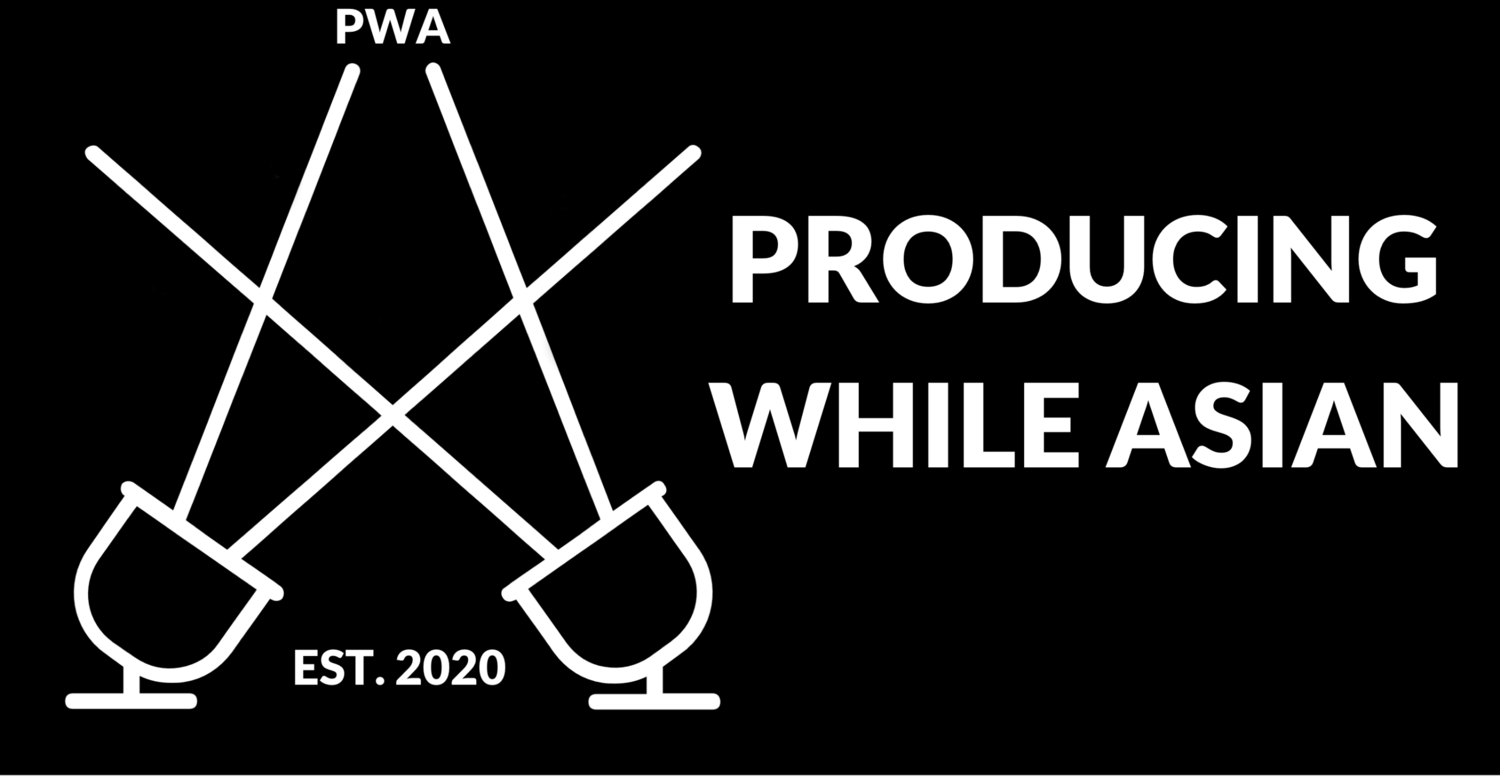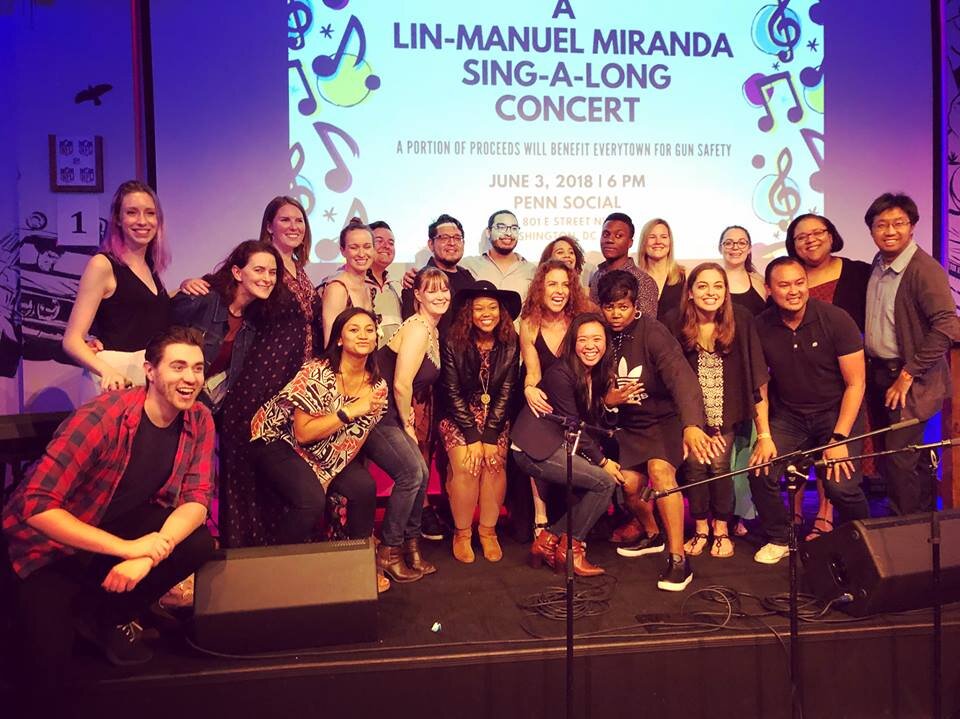Calling for Equity: Diversity and Inclusion Doesn’t Mean “No White People”
In the last year, controversies surfaced that touched the topic of diversity and inclusion - specifically regarding the accurate representation of race and ethnicity - such as the protests over a White woman portraying a Thai/Siamese woman in Jerome Robbins Broadway at The MUNY in St. Louis, Scarlett Johansson playing the Japanese lead in the feature film Ghost in the Shell - later she tried to play a Trans man, but that's a topic for the next post - and a hotly contested review of an all-White production of Gilbert & Sullivan's The Mikado in Maryland on the Washington, DC arts news source DC Metro Theater Arts.
As a producer, performer, and most importantly person of color, the biggest from of clap-back (that's Millennial for feedback for those in the back) on all these controversies is White people crying out that all of the efforts to widen diversity and inclusion efforts not just in the arts, but everywhere, is a move towards a world with "no white people."
I am here to argue the opposite.
The call for accurate representation of race and ethnicity in the entertainment industry is certainly not a call to ban all White people or to only give them lesser job opportunities to promote people of color over them. The clarification I want to make it that it is about placing people of color in the roles that are ethnically appropriate for them ALONGSIDE White performers BEFORE assuming that no one can be found for the "ethnic" roles and that the default should be someone who is White.
Now I know what you're thinking:
"Well, shouldn't it be about who is best suited for a role in terms of talent and skill, rather than race anyway? Isn't it about telling the story? If it's not about just the story, then what about Hamilton? That is certainly people playing a role in a race that they are not."
No.
First, as I will talk about in an article I wrote specifically about Hamilton and casting people of color to be published Monday, July 30 on DC Metro Theater Arts, the bigger point to casting in that musical is people of all backgrounds reflecting America as a melting pot telling one story that they all descended from, and...
Second, the point of the protests - for simplicity's sake we'll only talk about the controversies mentioned at the top of this blog post, which is a pretty accurate sampling - is that they all focus on the assumption that no one of color was available to fill the roles, when we know that certainly is not true. It is also about theatre companies still producing work that is culturally insensitive to the people they represent, (i.e. The King and I and The Mikado).
No matter how beautiful the music may be in an antiquated work or how much is done to make an outdated show created in a time of racism "up to date" and more ethnically sensitive, it will still be offensive no matter what you do.
To repeat: It. Is. From. A. Racist. Time.
So, if you choose to produce these works, then at the very least cast performers who at least come from the racial backgrounds represented in the story. It will be up to the actors of color if they want to audition for your show or not.
Now you ask:
"Well then, smart guy, if this is such an issue, then how do you suppose we solve this?"
There is no simple solution, but what I can suggest is that we continue to think about diversity and inclusion even more in terms of creating EQUITY rather than thinking all this controversy and change means excluding White people completely to include people of color.
If you are doing a show from before 1980 that involves any portrayal of any ethnicity, the new natural first step should be to think about your resources first before you go buying up the rights to do the production. Not to say that racism doesn't exist after 1980, but efforts for racial sensitivity did not really have a presence until after.
Equity is defined by Merriam-Webster as "the quality of being fair and impartial," and that is exactly what performers and producers of color - and also the LGBTQ community - are crying out for. No part of that instructs the exclusion of White people. To be fair to performers of color and to truly be diverse and inclusive, there must be a bigger effort to either cast people of color where appropriate and/or stop producing work that is culturally insensitive or even create new work that provides substantial opportunities to all.
If you need further explanation, here is a video that explains equity that is easy to understand!
Now specifically mentioning the review of The Mikado, that controversy not only touched on whether antiquated work should still be produced, but also the topic of free speech because in the editor's note, it mentions the article was taken down, but posted again due to cries of censorship.
If you actually read the review, you'll see a viewpoint that, yes, doesn't quite align with what the majority thinks of the show, but it is also a shining example of what didn't have to happen if a) the show was cast with people of Japanese or Asian descent and b) the show didn't happen at all since it was both in a community that lacked the ethnic talent resources and is generally a racially insensitive musical. Even if the music is some of Gilbert & Sullivan's finest work! Again, its not about excluding White people, but more to the point that it presents Japanese people in a caricatured nature, which in 2018 is pretty unacceptable. Also, who didn't think that the internet would find out and call them out on it?
Finally, if you're going to come for someone, don't come for DC Metro Theater Arts who's writer - albeit not what people wanted to read - simply stated his opinion. Question the theatre company that still thought it appropriate to produce a show that was written by White writers over a century ago that doesn't have a lick of accuracy in it as to how Japanese people look, sound, and act as people.
Equity is the practice of finding ways to lift the underprivileged up to be at an even pace with those who only experienced privileged lives and opportunities. The arts should not be any different, so let's make a bigger effort to make these disparate ends meet. Together. All backgrounds included.
This article is from Producing The District, originally posted on July 25, 2018

